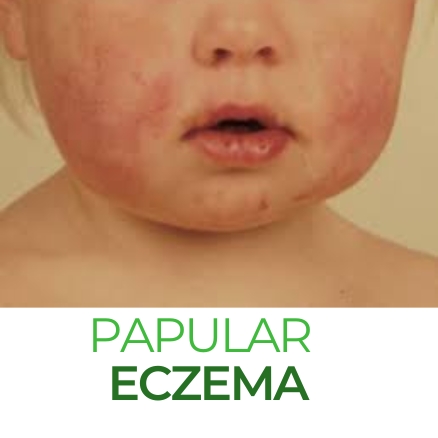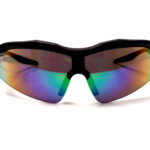Introduction to Papular Eczema
Papular eczema, also known as papular dermatitis or eczema papulosum, is a common skin condition characterized by small, raised bumps on the skin. This condition often affects children, causing discomfort and distress for them and their parents.
Understanding Papular Eczema in Children
Causes and Triggers
The exact cause of papular eczema is not fully understood, but it is believed to involve a combination of genetic and environmental factors. Common triggers include irritants, allergens, stress, and changes in weather conditions.
Causes of Papular Eczema in Children:
- Genetic Predisposition: Children with a family history of eczema or atopic dermatitis are more likely to develop papular eczema.
- Skin Barrier Dysfunction: An impaired skin barrier makes it easier for irritants, allergens, and bacteria to penetrate the skin, triggering eczema.
- Immune System Dysfunction: Abnormal immune responses can contribute to inflammation and the development of papular eczema in children.
- Environmental Factors: Exposure to certain environmental triggers such as dry air, harsh chemicals, or extreme temperatures can worsen eczema symptoms in susceptible children.
- Allergies: Sensitivity to certain allergens, such as pet dander, pollen, dust mites, or certain foods, can lead to eczema flare-ups.
Triggers of Papular Eczema in Children:
- Irritants: Substances like soaps, detergents, perfumes, and certain fabrics can irritate the skin and trigger eczema flare-ups.
- Allergens: Common allergens like pollen, dust mites, pet dander, mold, and certain foods can provoke an allergic reaction in children with eczema.
- Extreme Temperatures: Exposure to extreme cold or hot temperatures can worsen eczema symptoms by drying out the skin or causing sweating.
- Stress: Emotional stress or anxiety can weaken the immune system and exacerbate eczema symptoms in children.
- Scratching: Persistent scratching of itchy skin can damage the skin barrier and lead to the formation of papules.
- Infections: Bacterial, viral, or fungal infections can trigger eczema flare-ups in children, especially if the skin is already compromised.
- Hormonal Changes: Fluctuations in hormone levels, such as during puberty or menstruation, can influence eczema symptoms in some children.
Symptoms and Diagnosis
Symptoms of papular eczema in children include red or inflamed skin with small bumps that may itch or become irritated. Diagnosis is typically based on a physical examination by a healthcare professional, although further testing may be needed in some cases.
Challenges Faced by Parents
Emotional Impact
Parents of children with papular eczema often experience emotional stress and anxiety due to seeing their child in discomfort and feeling helpless to alleviate their symptoms. Guilt and frustration may also arise from being unable to “fix” the problem.
Practical Concerns
Managing papular eczema can be challenging for parents, requiring time, effort, and resources. Dealing with frequent flare-ups, applying treatments, and navigating the healthcare system can add additional stress to an already demanding parenting role.
Strategies for Managing Papular Eczema
Dealing with any skin condition in children can be a bit tricky, but with the right strategies, you can help your little one feel more comfortable and keep those pesky papules at bay.
What can you do to help manage papular eczema in your child? Here are some strategies to try:
- Keep the Skin Moisturized: Moisturizing is key when it comes to managing eczema. Use a gentle, fragrance-free moisturizer regularly to keep your child’s skin hydrated and less prone to irritation.
- Avoid Triggers: Eczema can be triggered by certain things like harsh soaps, perfumes, and even certain foods. Try to identify and avoid triggers that might be making your child’s eczema worse.
- Choose the Right Clothing: Opt for soft, breathable fabrics like cotton, and avoid scratchy materials like wool. Loose-fitting clothing can also help prevent irritation.
- Short, Lukewarm Baths: Long, hot baths can actually dry out the skin and make eczema worse. Stick to short, lukewarm baths and use gentle, fragrance-free cleansers.
- Pat Dry, Don’t Rub: After bathing, gently pat your child’s skin dry with a soft towel. Avoid rubbing, as this can irritate the skin even more.
- Manage Itchiness: Itchiness is often the most bothersome symptom of eczema. Keep your child’s nails short to prevent scratching, and consider using anti-itch creams or cold compresses to provide relief.
- Consult a Doctor: If your child’s eczema doesn’t improve with home care or if it’s causing significant discomfort, it’s a good idea to consult a doctor. They can recommend prescription treatments or other interventions to help manage the condition.
- Create a Relaxing Routine: Stress can sometimes make eczema worse, so try to create a calming bedtime routine for your child. This might include activities like reading, listening to soft music, or practicing deep breathing exercises.
Medical Treatments
Various medical treatments are available to help manage papular eczema in children, including topical corticosteroids, moisturizers like medicated shampoo and body wash, antihistamines, and, in some cases, oral medications. It is essential to consult with a healthcare professional to determine the most suitable treatment plan for your child.
Lifestyle Adjustments
In addition to medical interventions, lifestyle adjustments can help alleviate symptoms and prevent flare-ups. This may include identifying and avoiding triggers, maintaining a consistent skincare routine, and ensuring your child wears soft, breathable clothing.
Coping Mechanisms for Parents
Seeking Support
Parents of children with papular eczema can benefit from seeking support from healthcare professionals, support groups, and other parents who are going through similar experiences. Sharing concerns, advice, and coping strategies can help alleviate feelings of isolation and provide valuable emotional support.
Self-Care Practices
Taking care of your well-being is crucial when parenting a child with papular eczema. Prioritize self-care activities such as exercise, relaxation techniques, and hobbies that bring you joy and relaxation. Remember that you can better support your child by taking care of yourself.
Conclusion
Navigating papular eczema in children presents unique challenges for parents, both emotionally and practically. Parents can better support their children and themselves through this journey by understanding the condition, implementing effective management strategies, and prioritizing self-care.
FAQs
- Can papular eczema be cured?
- While there is currently no cure for papular eczema, it can be managed effectively with appropriate treatments and lifestyle adjustments.
- Are there any home remedies for relieving papular eczema symptoms?
- Some parents find that applying cool compresses, using gentle skincare products, and avoiding known triggers can help alleviate symptoms. However, it’s essential to consult with a healthcare professional before trying any home remedies.
- Is papular eczema contagious?
- No, papular eczema is not contagious. It is a chronic inflammatory skin condition not caused by bacteria or viruses.
- Can diet affect papular eczema in children?
- While diet may trigger eczema flare-ups in some children, the relationship between diet and eczema is complex and varies from person to person. It’s essential to consult with a healthcare professional or a registered dietitian for personalized dietary advice.
- What should I do if my child’s eczema symptoms worsen despite treatment?
- If your child’s eczema symptoms worsen or do not improve with treatment, it’s essential to consult with their healthcare provider. They may need to adjust their treatment plan or explore alternative options.



